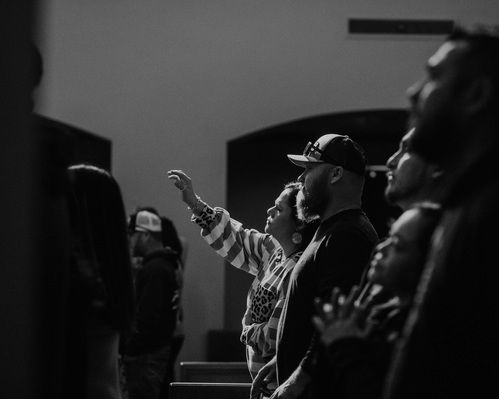Monday Devo

Scripture Reading:
Luke 6:12-16
12 One day soon afterward Jesus went up on a mountain to pray, and he prayed to God all night. 13 At daybreak he called together all of his disciples and chose twelve of them to be apostles. Here are their names:
14 Simon (whom he named Peter), Andrew (Peter’s brother), James, John, Philip, Bartholomew, 15 Matthew, Thomas, James (son of Alphaeus), Simon (who was called the zealot), 16 Judas (son of James), Judas Iscariot (who later betrayed him).
12 One day soon afterward Jesus went up on a mountain to pray, and he prayed to God all night. 13 At daybreak he called together all of his disciples and chose twelve of them to be apostles. Here are their names:
14 Simon (whom he named Peter), Andrew (Peter’s brother), James, John, Philip, Bartholomew, 15 Matthew, Thomas, James (son of Alphaeus), Simon (who was called the zealot), 16 Judas (son of James), Judas Iscariot (who later betrayed him).
Commentary from the ESV Study Bible:
6:12–16 Jesus Appoints Twelve Apostles. From among his many disciples, Jesus chooses 12 apostles (Gk. apostolos, “messenger, one who is sent out”). On the office of apostle, see note on Rom. 1:1.
6:12 he went … to pray. Luke alone mentions Jesus praying before choosing the apostles (see Introduction: Key Themes). All night he continued in prayer underscores the importance that Jesus placed on prayer, especially here before making the crucial choice of who should be his disciples.
6:14 Simon, whom he named Peter. The most prominent disciple heads each listing of the disciples. Henceforth Luke will use the name “Peter” (except in 22:31 and 24:34). Andrew, the brother of Peter, is also mentioned in Acts 1:13. James and John. A second set of brothers, who were also Galilean fishermen (Luke 5:10–11) and partners (5:7) of Peter and Andrew. Philip. From Bethsaida, the same city (or birthplace) as Peter and Andrew (John 1:44). Bartholomew is a family name (patronym) that occurs in each of the lists in the Synoptic Gospels. He is probably the same person as Nathanael listed in John’s Gospel.
6:15 Matthew. See 5:27. Thomas. Called the “Twin” (Gk. Didymos) in John 11:16; 20:24; 21:2. James the son of Alphaeus. Not to be confused with James the brother of John, James the brother of Jesus, or the James of Mark 15:40. Simon … the Zealot. “Zealot” comes from the Greek word zēlōtēs. The Zealots were political activists who were radically opposed to Roman rule. Apart from Jesus’ call and influence on their lives, Matthew and Simon would have had deep animosity toward each other, with Matthew (as a tax collector) working in the service of Rome, and Simon (as a Zealot) seeking to overthrow Rome. See also “Simon the Cananaean,” who is the same person (Matt. 10:4 and Mark 3:18).
6:16 Judas the son of James does not appear in the parallel accounts in Matthew (10:3) and Mark (3:18); in his place is “Thaddaeus,” which is probably his other name (many of the apostles had double names). The name for the other Judas was qualified by Iscariot, which probably means “man from Kerioth,” a town in Judea (see John 6:71; 13:26). who became a traitor. Cf. Luke 22:3–6, 47–48; Acts 1:16–20.
6:12 he went … to pray. Luke alone mentions Jesus praying before choosing the apostles (see Introduction: Key Themes). All night he continued in prayer underscores the importance that Jesus placed on prayer, especially here before making the crucial choice of who should be his disciples.
6:14 Simon, whom he named Peter. The most prominent disciple heads each listing of the disciples. Henceforth Luke will use the name “Peter” (except in 22:31 and 24:34). Andrew, the brother of Peter, is also mentioned in Acts 1:13. James and John. A second set of brothers, who were also Galilean fishermen (Luke 5:10–11) and partners (5:7) of Peter and Andrew. Philip. From Bethsaida, the same city (or birthplace) as Peter and Andrew (John 1:44). Bartholomew is a family name (patronym) that occurs in each of the lists in the Synoptic Gospels. He is probably the same person as Nathanael listed in John’s Gospel.
6:15 Matthew. See 5:27. Thomas. Called the “Twin” (Gk. Didymos) in John 11:16; 20:24; 21:2. James the son of Alphaeus. Not to be confused with James the brother of John, James the brother of Jesus, or the James of Mark 15:40. Simon … the Zealot. “Zealot” comes from the Greek word zēlōtēs. The Zealots were political activists who were radically opposed to Roman rule. Apart from Jesus’ call and influence on their lives, Matthew and Simon would have had deep animosity toward each other, with Matthew (as a tax collector) working in the service of Rome, and Simon (as a Zealot) seeking to overthrow Rome. See also “Simon the Cananaean,” who is the same person (Matt. 10:4 and Mark 3:18).
6:16 Judas the son of James does not appear in the parallel accounts in Matthew (10:3) and Mark (3:18); in his place is “Thaddaeus,” which is probably his other name (many of the apostles had double names). The name for the other Judas was qualified by Iscariot, which probably means “man from Kerioth,” a town in Judea (see John 6:71; 13:26). who became a traitor. Cf. Luke 22:3–6, 47–48; Acts 1:16–20.
Study Questions:
- The City 7 that we covered this week was #7, "How can I trust that the Bible is still God’s Word today? I trust the Bible is still God’s Word today because Jesus rose from the dead proving He was God and said His words would never pass away. Through the Holy Spirit, God inspired the writing of the Scripture, determined the canon of Scripture and protected the copying of Scripture so that we might know Him and worship Him to this day." This highlights why we should have complete confidence in the Word of God and its accuracy. When we compare the scriptures we have today to some of the original manuscripts, we get 99.5% accuracy to the original texts. That is EXTREMELY accurate. So when Jesus said his words would never pass away, he wasn't lying! If God could raise Jesus from the dead, don't you think he would be capable of overseeing the writing and copying of Scripture? Don't you think he could protect the process? Don't you think he would WANT us to have an accurate copy of his Word? What does this do for your confidence in Scripture? Does it build your faith in the truth of his Word? Would you say you have a true LOVE of Scripture?
- Jesus' ministry of preaching and miracles is well underway. He's had a few run-ins with the religious leaders of the day and he's chosen some men to follow him, to be disciples. These verses introduce us to three groups of people... the crowd, the disciples and the apostles. Being a disciple means being a disciplined follower of "The Way." An apostle, though, is someone that has been with Jesus and was commissioned by Jesus himself. He is a representative that is invested with the full authority of the one who sent him. Jesus chooses here 12 of his disciples to be apostles. These 12 were far from perfect. In fact, if we're being honest, they were a bunch of misfits. They were very flawed, imperfect men. James had trouble remembering things Jesus said, Peter started fights with Jesus and behaved impulsively. And then, of course, there's Judas. This should be encouraging to us. God used regular people to do great things THEN and he does the same thing NOW. Have you ever felt like you were unqualified to be used by God in a big way? Have you ever felt like your life is too messed up to tell people about Jesus? Has insecurity ever kept you sidelined?
Pray:
- That we would fall in love with the Word of God.
- That we wouldn't let insecurity get in the way of God's will for our lives.

2 Comments
I appreciate having the devos and that it reiterates what was taught the Sunday before and breaks it down a bit more. It's like a refresher course.
â¤ï¸